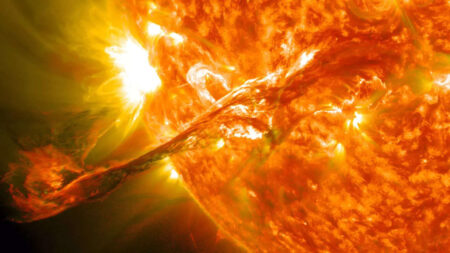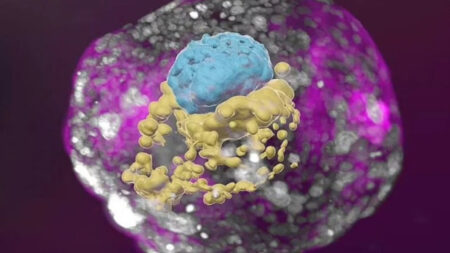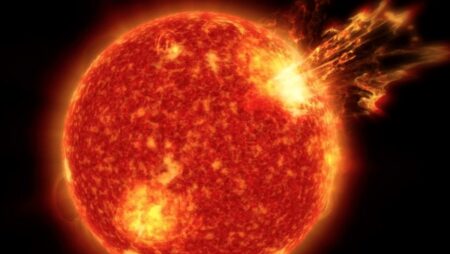
2 days ago, whole lunar eclipse will be the ultimate for the successive three years. The total phase of the eclipse has commenced as the whole Moon is covered by the Earth’s shadow. This total stage will end at 5.12 PM while the partial stage of the eclipse will proceed till 6.19 PM.

| About Lunar Eclipse: The Moon revolves around the Earth in an orbit. At a similar period, the Earth orbits the Sun. Sometimes the Earth also arrives between the Sun and the Moon. When this happens, the Earth blocks out sunlight that would commonly be indicated by the Moon. It is the sunlight that causes the moon to gleam. Rather than light hitting the Moon’s ground, Earth’s shadow plunges into the Moon. This is a lunar eclipse. A lunar eclipse can happen only when the moon is whole. The lunar eclipse can be seen from Earth at night. There are three kinds of lunar eclipses: Total lunar eclipse. Partial lunar eclipse Penumbral lunar eclipse |


A lunar eclipse commences when the Earth arrives between the Sun and the Moon, partially or wholly halting sunlight from reaching the Moon. This casts a shadow on the surface of the Moon, which we see from Earth.
During a total solar eclipse, some of the sunlight will still attain the Moon. This light will also enact through Earth’s environment, where blue light will be dispersed in all paths due to a phenomenon called Rayleigh dispersion. It also enables red light to pass through and reflect off the Moon, formulating it to happen red during an eclipse.
Under the Ministry of Earth Sciences, the entire stage of the eclipse will proceed during the moonrise in myriad eastern parts of the nation, comprising Kolkata and Guwahati. But for distinct cities like Delhi, Mumbai, Chennai, and Bengaluru, the entirety would have halted by the time of the moonrise. The eclipse is not presently noticeable in India as it is still a day, but you can see it in the live stream below as adequately.
The entire lunar eclipse has now commenced as the Moon is entirely wrapped by the shadow cast by Earth. As you can discern, the Moon now seems rosier because the light indicating it right now is the sunlight that has enacted through the Earth’s climate.
The entirety of a lunar eclipse, when the Earth’s shadow wholly encloses the Moon, will commence within a few minutes. Presently, as can be discerned in the portrayal below, it seems as though part of the Moon is wholly blurred, but this is because the sharp reflection from the uncovered part washes out the covered part. According to NASA scientist Noah Pedro, this occurs when we see the eclipse with our own eyes because of the way our brain processes light.
But when a total lunar eclipse commences, the entire moon will be brightened with a dim blushing light. This is because some light from the Sun will still attain the Moon after enacting through the Earth’s climate. As this light enacts through the climate, only then the blue wavelengths will be dispersed in all ways, enabling the blushing wavelengths of light to pass through.
Why don’t lunar eclipses occur further continually?
The Moon obtains one full process around the Earth every month, rounding up in the way of the Sun during the new moon and on the contrary way of the Sun during an entire moon. But if that is the case, why don’t lunar eclipses occur doubly every month?
This is because the Moon encircles the Earth with a circle that is barely inclined, worrying Earth’s circle around the Sun. But this tilt persists continually compared to the stars, significance that it alters compared to the Sun. That implies that the Moon gets in a straight position to enact through the Earth’s shadow about twice a year, resulting in a lunar eclipse.
How to sight the eclipse
You don’t require any particular appliance to discern a lunar eclipse but having binoculars or a telescope can provide you with a nicer impression of the Moon and its blushing shade during the eclipse. Similarly, the nicest viewing circumstances can be established in darker areas off of the town lights. In the map below, you can see the portions of the globe from which distinct stages of the eclipse will be noticeable. The colored patterns mark the edge of the perception nation for distinct stages.








